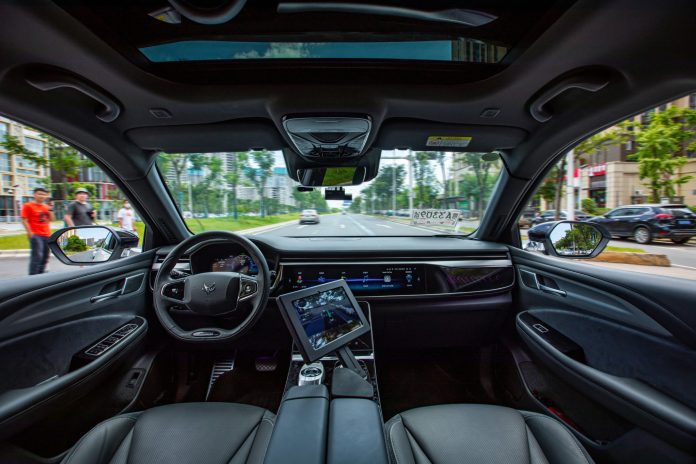Baidu said its robotaxi services will initially operate in parts of Chongqing and Wuhan
Chinese internet company Baidu secured what it claims are the first permits in China to offer commercial driverless robotaxi services to the public on open roads.
In a release, Baidu said that its Apollo Go autonomous ride-hailing service is now authorized to collect fares for robotaxi rides in the cities of Chongqing and Wuhan.
“This is a tremendous qualitative change,” said Wei Dong, VP and chief safety operation officer of Baidu’s Intelligent Driving Group. “Fully driverless cars providing rides on open roads to paying customers means we have finally come to the moment that the industry has been longing for. We believe these permits are a key milestone on the path to the inflection point when the industry can finally roll out fully autonomous driving services at scale.”
The permits were granted to Baidu by government agencies in Wuhan and Chongqing’s Yongchuan district. The company noted that both cities have been paving the way for the implementation of intelligent transportation projects in recent years, including the development of infrastructure as well as updating new regulations for autonomous vehicles (AVs).
Baidu also said it will now begin to provide fully driverless robotaxi services in the designated areas in Wuhan from 9 AM to 5 PM, and in Chongqing from 9:30 AM to 4:30 PM, with five of its fifth-generation Apollo robotaxis operating in each city.
In Wuhan, Baidu will provide the service in an area covering 13 square kilometers in the Wuhan Economic & Technological Development Zone, while in Chongqing, the designated area covers 30 square kilometers in the city’s Yongchuan district.
In order to obtain the permits, Baidu said its robotaxis have undergone multiple steps of testing and licensing, starting from testing with a safety operator in the driving seat, to testing with a safety operator in the passenger seat, before finally receiving authorization to operate with no human driver or operator in the vehicle.
Baidu also highlighted that its robotaxis come with multi-layer mechanisms to guarantee safety, including the autonomous driving system, monitoring redundancy, remote driving capability and a safety operation system.
By the end of March 2022, Baidu has a total of 4,000 autonomous driving patent applications in China. Baidu also said that its Apollo Go autonomous ride-hailing service is present in other Chinese cities including Beijing, Shanghai, Guangzhou and Shenzhen.

